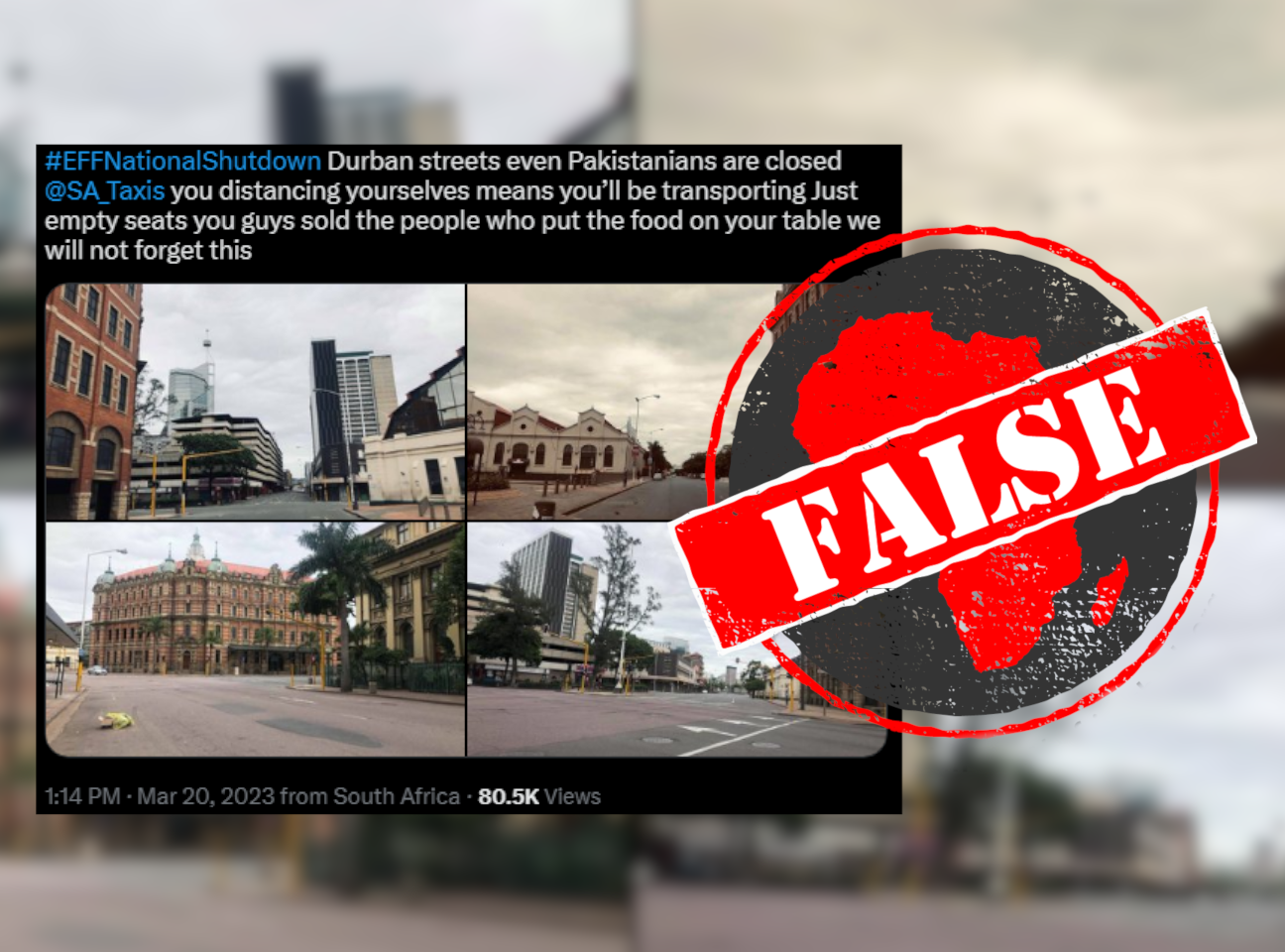IN SHORT: Photos circulating on social media in South Africa don’t show Durban during the stayaway called by an opposition party for 20 March 2023. They are of the deserted city centre during South Africa’s first Covid lockdown in 2020.
A post circulating on social media in South Africa in late March 2023 claims to show a collection of photos taken in the city of Durban on the country’s east coast, during a day of planned protest action.
Members of the Economic Freedom Fighters (EFF), a large opposition party, planned a “national shutdown” for 20 March, calling for an end to Cyril Ramaphosa’s presidency and the continual power cuts plaguing the country, and a lack of job opportunities.
“Durban streets … are closed,” the post reads. It shows four photos of Durban city streets that appear to be almost completely empty. The post has been viewed over 151,000 times, and was even retweeted by the EFF.
One would expect the streets pictured to be bustling on a weekday morning. One of the photos clearly shows the historic Durban train station in the city centre. If these photos really showed Durban on 20 March, this would suggest many had heeded the EFF’s call to stay home.
But, as many Twitter users were quick to point out, they did not.

National shutdown and public debate
The day of the shutdown saw conflicting reports from the EFF, the media and members of other political parties about its success.
EFF leader Julius Malema claimed it was the “most successful shutdown ever” in the country. He said: “Today, there is no big mall or small mall, no factory, no school that is open today. All of them are closed.”
But a news report by News24 found much of this to be false.
Image search reveals photos are years old
We searched for matching images using Google Lens and found posts, like this, with the same photos. But they were posted in March 2020, not 2023.
South Africa was under what was called a “hard lockdown” in March 2020, at the start of the Covid-19 pandemic. During the lockdown, people’s movement was restricted, so many public places like city centres were mostly deserted.
We found that East Coast Radio published a collection of photos on their website, taken around Durban when the lockdown began. The photos reposted in 2023 were published here, under the headline “Day 1 lockdown: Durban CBD transformed into a ghost town”.
Many social media users were quick to point out in 2023 that the photos were from 2020. “But these are lockdown pictures … why are you lying?” one user asked. Another replied with a video of traffic on a Durban highway, apparently taken on 20 March 2023, captioned “Normal day in Durban”.
These photos were taken in 2020 and unrelated to the national shutdown called by the EFF on 20 March 2023.
Republish our content for free
For publishers: what to do if your post is rated false
A fact-checker has rated your Facebook or Instagram post as “false”, “altered”, “partly false” or “missing context”. This could have serious consequences. What do you do?
Click on our guide for the steps you should follow.
Publishers guideAfrica Check teams up with Facebook
Africa Check is a partner in Meta's third-party fact-checking programme to help stop the spread of false information on social media.
The content we rate as “false” will be downgraded on Facebook and Instagram. This means fewer people will see it.
You can also help identify false information on Facebook. This guide explains how.


Add new comment